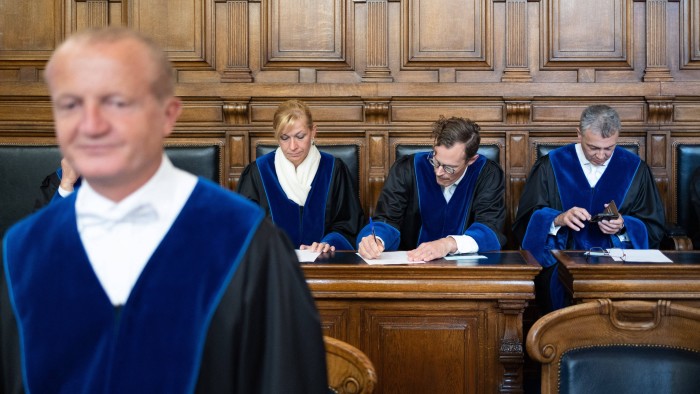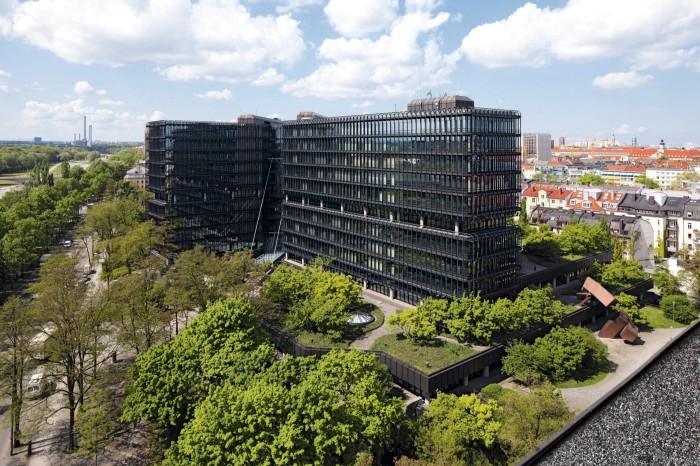Europe’s patent courts gain sweeping overhaul

Roula Khalaf, Editor of the FT, selects her favourite stories in this weekly newsletter.
A new patent system aimed at making the protection of intellectual property easier and cheaper finally became operational in Europe this month, after years of delays.
The Unified Patent Court has been launched to play a crucial role in hearing lawsuits relating to a new type of patent issued by the Munich-based European Patent Office that covers 17 EU countries.
The EPO will be able to grant a single “unitary” patent covering all the countries that have signed up to the UPC, including Austria, Belgium, Germany and France. It has described the new system as “the most significant development” since the signing of the European Patent Convention 50 years ago.
The change is significant because, until now, patents in Europe have been national in scope and issued on a country-by-country basis by national patent offices or the EPO. This has meant companies seeking patents in Europe have ended up with a bundle of individual national patents for the same invention. As a result, legal disputes over patent infringement result in parallel cases in courts across the continent.

From June 1, the new unitary patent system allows companies to apply for one patent and to use a single legal system so that any disputes are heard before one court — the Unified Patent Court.
The goal is to cut costs, streamline procedures and increase transparency.
Although the new regime starts this month, there will also be a transition period of at least seven years during which companies can use the existing system, with the UPC running in parallel — so companies can still file patents with national patent offices and take disputes to national courts if they do not want to use the UPC. It is unclear what will happen after the transition period.
Klaus Grabinski, president of the Court of Appeal of the UPC, says the court is “is like a one-stop shop. It increases the consistency of patent case law in Europe and increases harmonisation”.
Alex Wilson, partner at law firm Powell Gilbert, says that “in extreme cases you have court proceedings in 10-15 different jurisdictions between the same parties and so there is the potential for rationalising these cases to a small number”.
The UPC can also issue injunctions against a possible patent infringement — seen as a powerful legal weapon when a single court order would cover 17 countries with up to 300mn consumers.
This new system, which is open only to EU member states, has been years in the making. The EU first set it up in 2012 to simplify Europe’s patent protection and cut costs for inventors. The court is not housed in a single building — under its distributed system, the UPC will have a network of local and regional courts, and a court of appeal in Luxembourg. The EPO, itself, is a non-EU body with 39 member states, including Norway and Turkey.
António Campinos, president of the EPO, said in a recent statement that the new patent regime would bolster Europe’s position as a critical market for innovation: “Users can look forward to a more accessible form of patent protection that will deliver growth for our businesses and economies, and help our inventors to deliver sustainable solutions to tackle the great challenges of our day.”
The lengthy delays to its launch have been partly due to Brexit and because Germany’s constitutional court had to rule on a complex complaint filed against the country’s participation in the UPC.
The UK had been due to play an important role in the UPC — London was to host a court dealing with chemicals, pharmaceuticals and life sciences patents. But hopes that the UK could continue with the system despite Brexit were dashed under Boris Johnson’s government, which stated in 2020 that it could not participate in a court that applies EU law and is bound by rulings of the European Court of Justice.
Some lawyers have expressed disappointment that the UK is not involved in such a significant project. “My impression is there is a sense of loss and regret among patent lawyers that the UK is not in it and UK judges can’t sit as patent judges . . . people see it as a big missed opportunity,” says Alexander Robinson, patent attorney at Mathys & Squire.
But Robinson says that UK-based patent attorneys can still act to obtain patents through the EPO because of the way that the rules of representation for the UPC have been set up. This means UK citizens who are European Patent Attorneys will also be eligible to act as litigators at the UPC as long as they have certain additional qualifications — which most do have.
Wilson believes companies may be wary about using the court initially — because losing a patent case at the UPC could be a high stakes option and an adverse ruling would be binding in 17 countries — rather than in just one jurisdiction. “The downside of any ruling is magnified,” he says. “There are plenty of people who will wait and see how the system develops,” he suggests.
Lawyers say that whether a company decides to opt in or out of the UPC may also depend on what sector they operate in and how important patents are to their business model. “For some firms, a patent could be invalidated in 17 countries by a single court ruling,” points out Robinson. “It’s a new system with rules of evidence and we do not know how it will work, and so some companies will opt out and choose to go through a system which is known.”

Comments